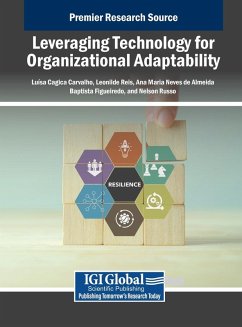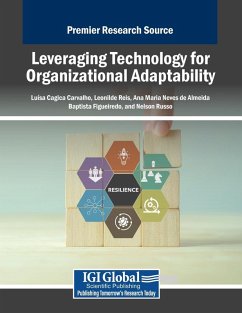
Organizational Intelligence for Change Adaptability
The Knowledge, Learning, and Collaboration Cultures Approach
Versandkostenfrei!
Versandfertig in 1-2 Wochen
178,99 €
inkl. MwSt.
Weitere Ausgaben:

PAYBACK Punkte
89 °P sammeln!
This book offers a pioneering exploration of how the synergy between knowledge, learning, and collaboration (the KLC approach) drives organizational intelligence and adaptability. Grounded in empirical research and case studies, it examines how the impact of the KLC approach varies based on company culture and management levels.














